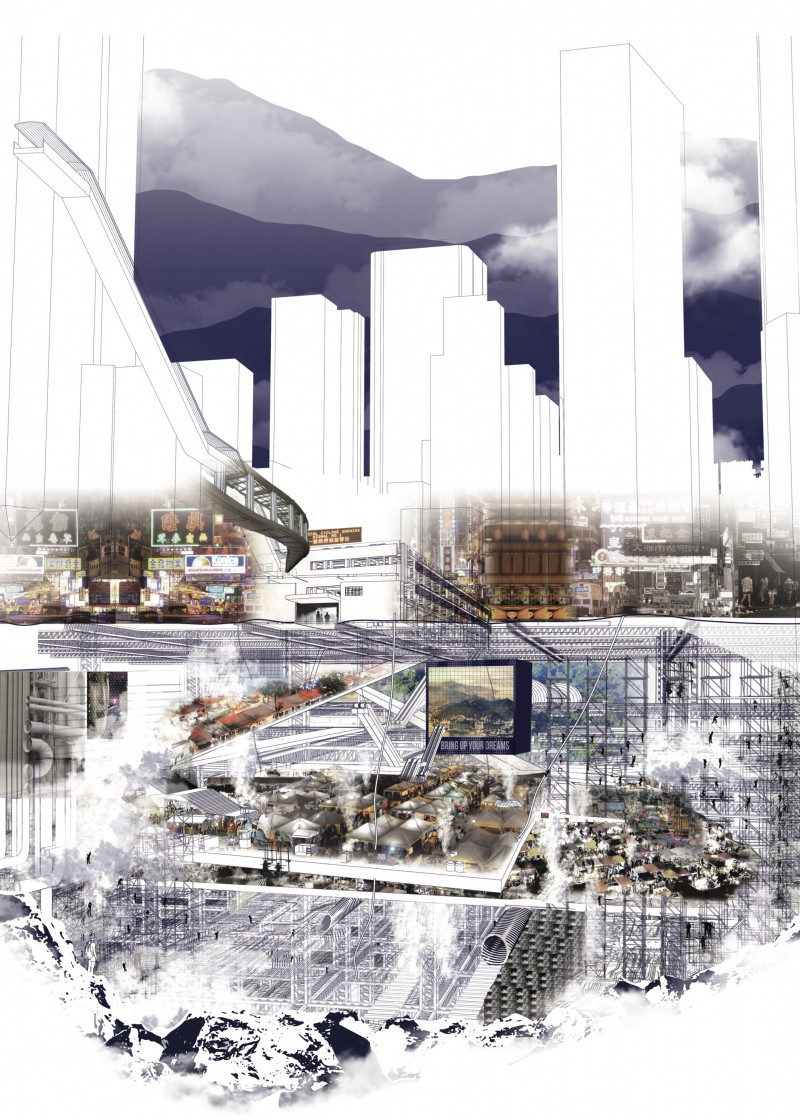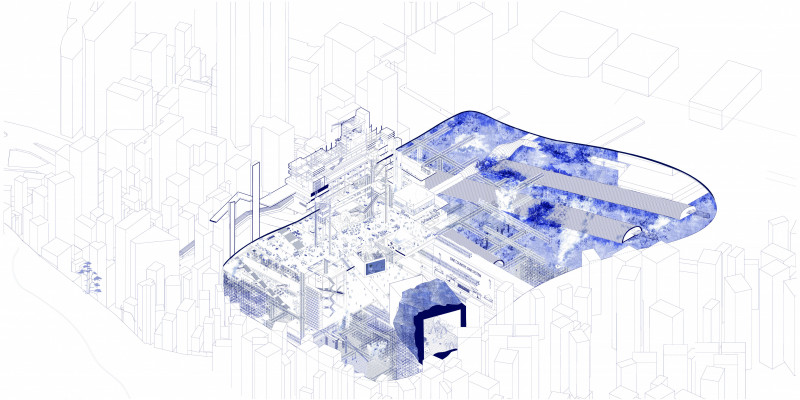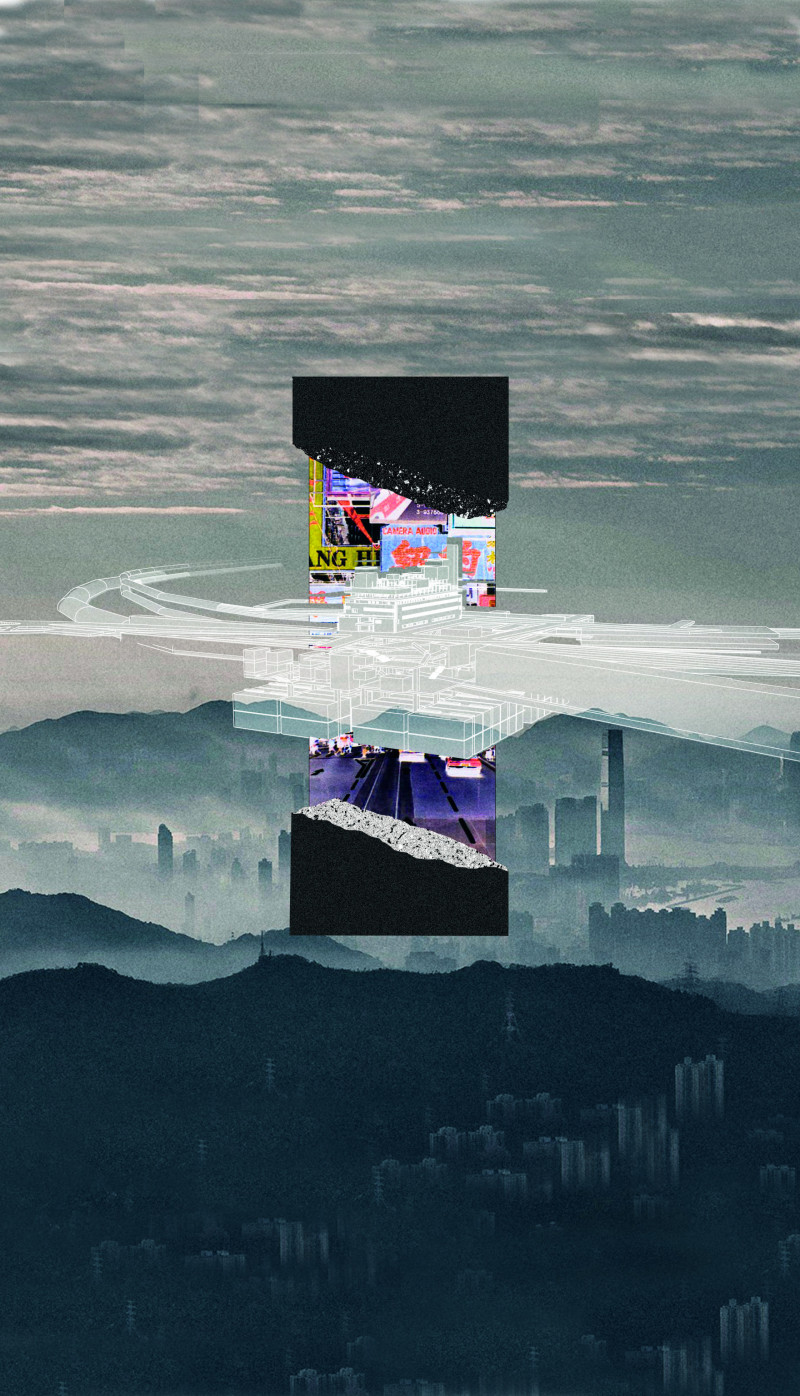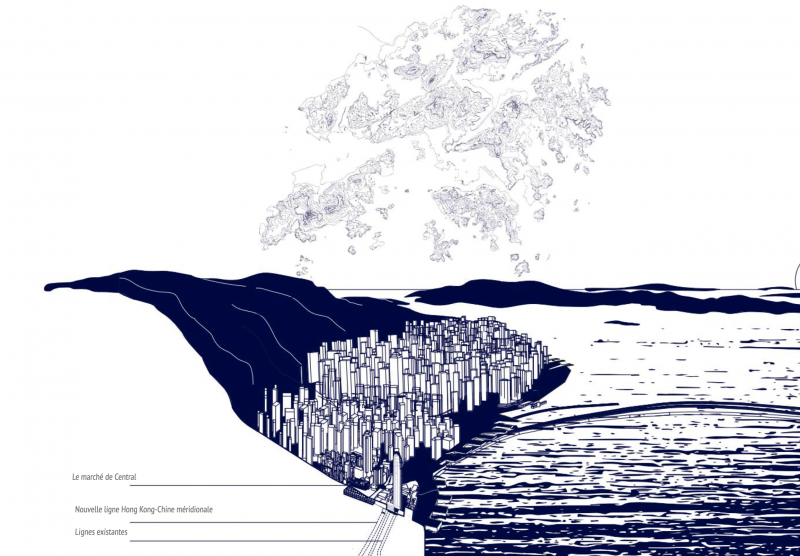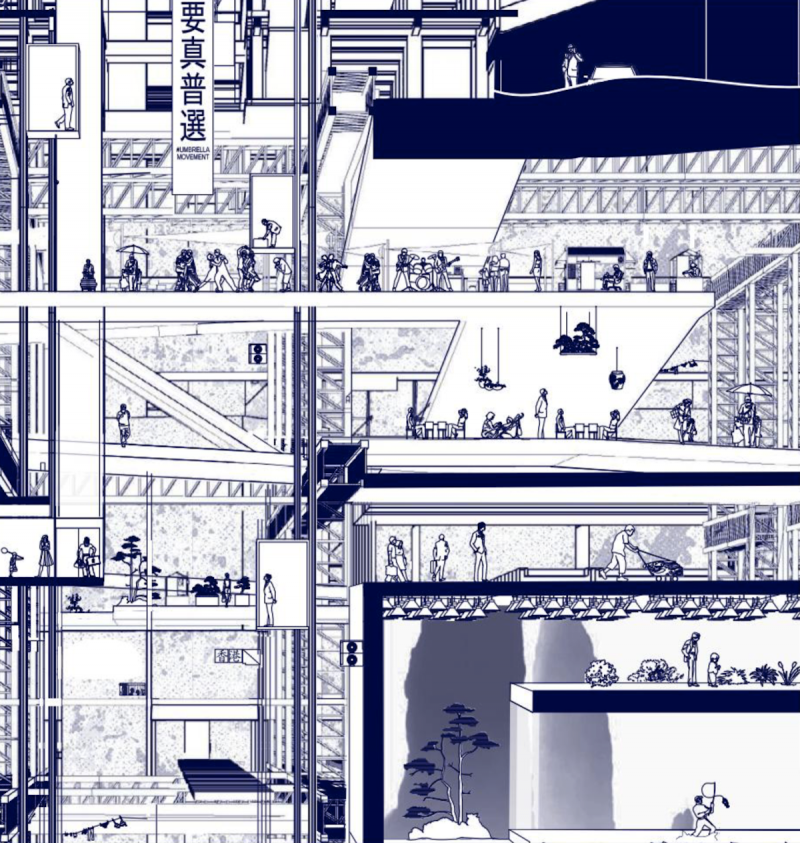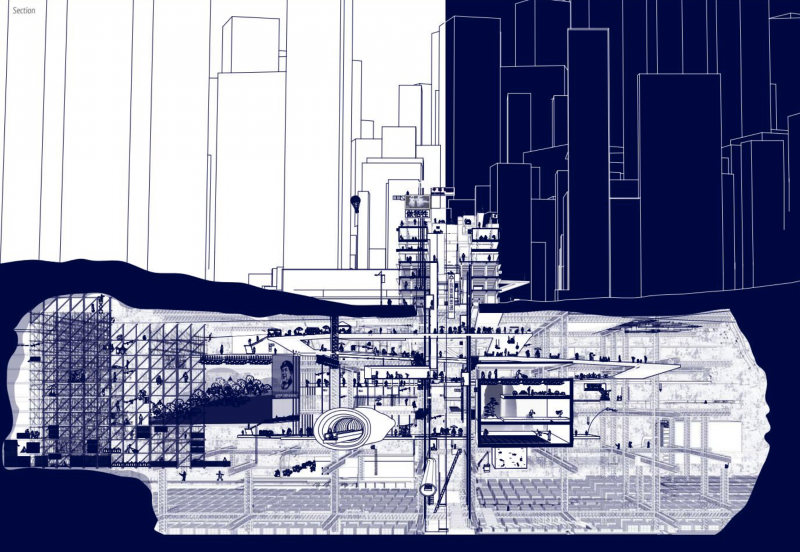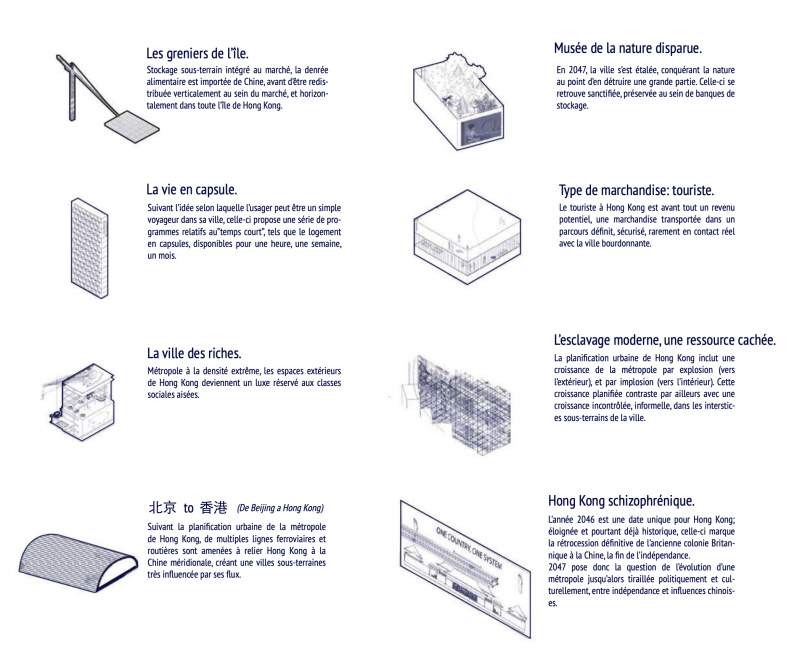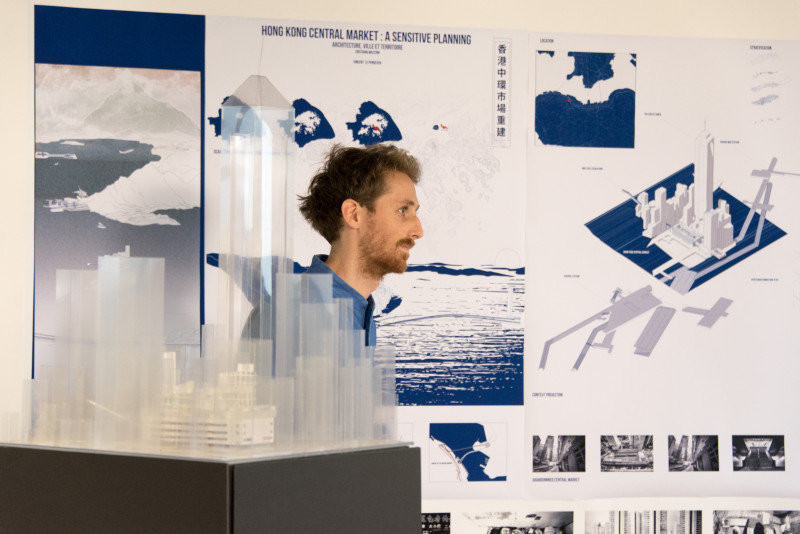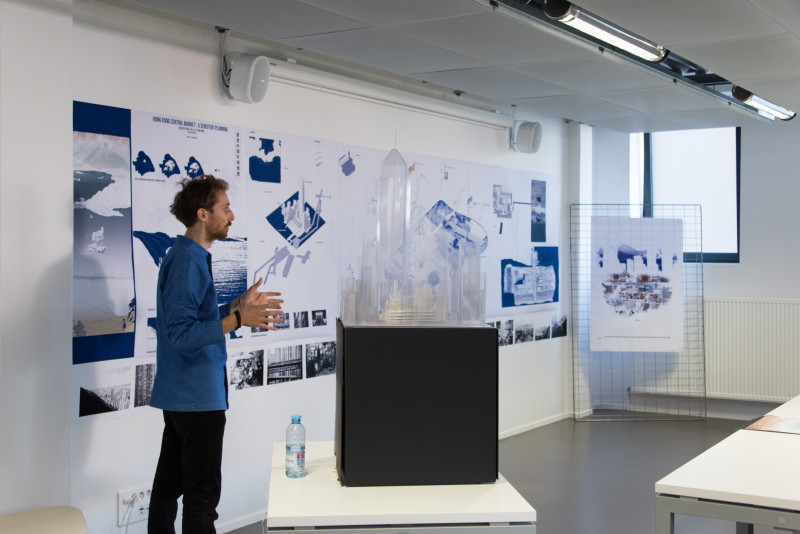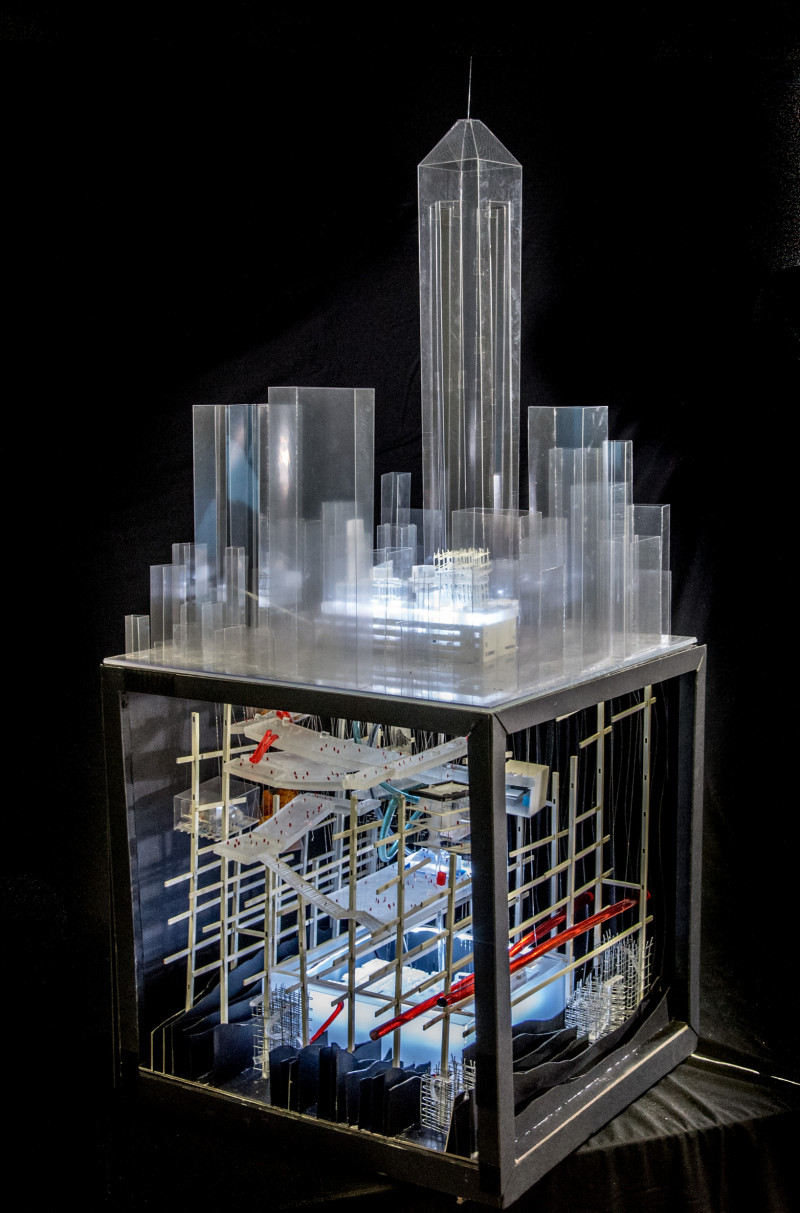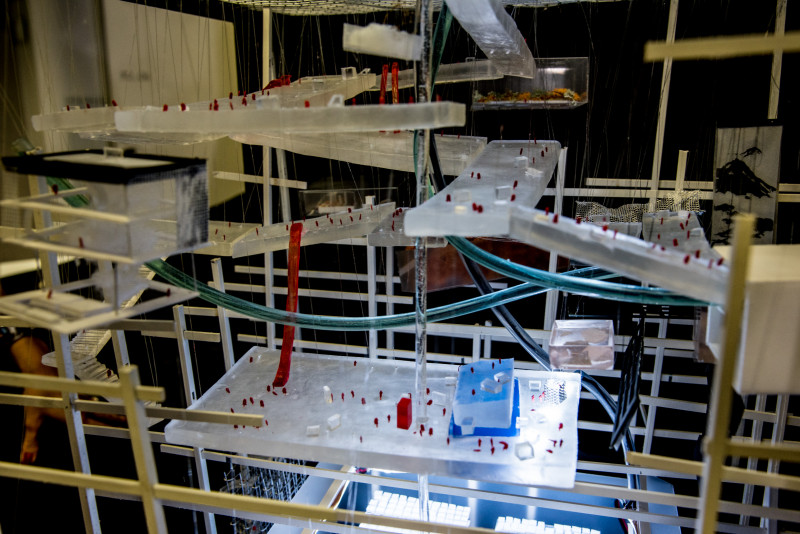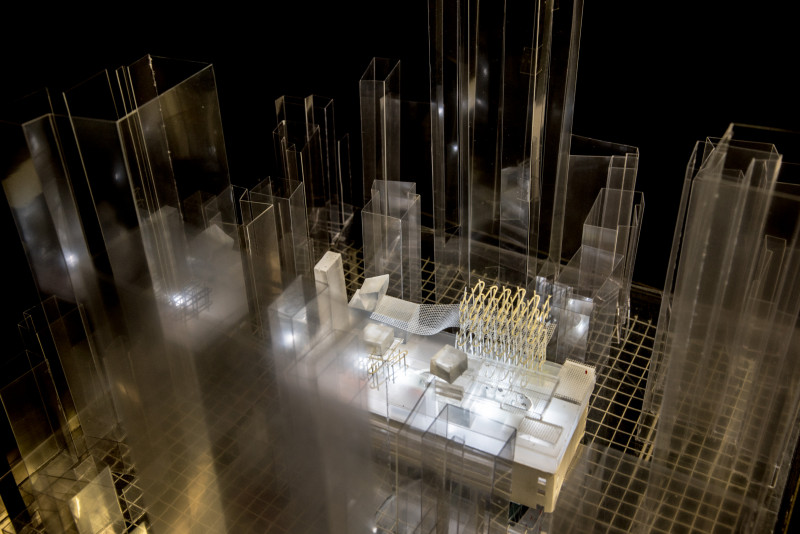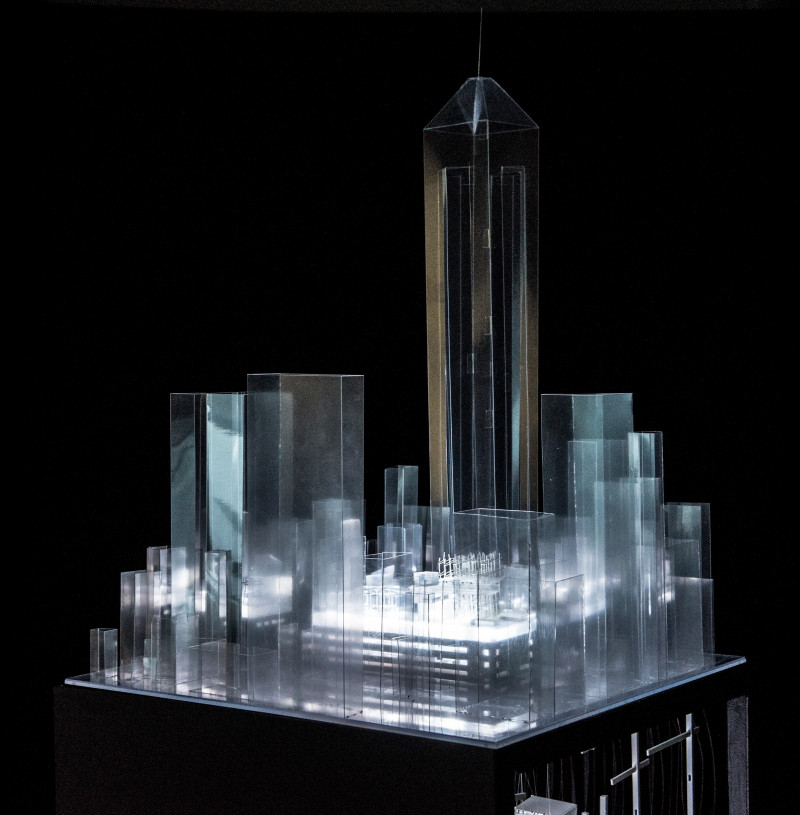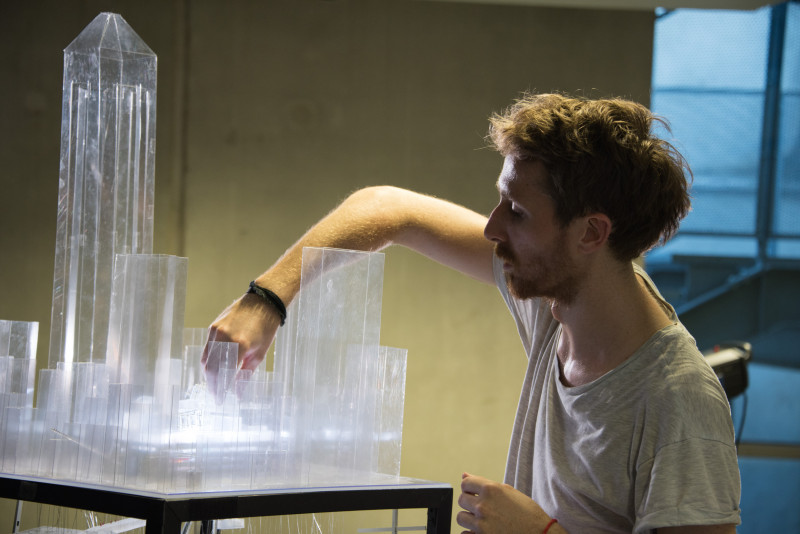Hong Kong 2047 Central Market
Based on a rational analysis of the city's future transportation infrastructure, this work aims to imagine a possible future for the Hong Kong metropolis. Neither a utopian nor a dystopian position, the project consists in pushing to its limit the problem of lack of space in the Chinese metropolis.
Located in the Central district, the project focuses on the reuse of the historical and colonial market. In 2047, the city is suffocating, saturated and must find new spaces everywhere. This compact city imports (as it does today) its food from China using the underground as a base for storage and redistribution of food stocks. The system takes advantage of the proximity of the direct Hong Kong / Shenzhen train line for the transportation of goods. The market develops along this industrial storage, with an underground street, reaching Hong Kong at its lowest level. Along this ramp are grafted several activities, those of the "city of tourists", confined and considered as "products", but also those of the local population, offering a constantly changing layout of space according to the time and needs. Resulting in a first stage of formal and official planning of the development of the city, the project is chronologically a sequence of informal and illegal developments, making it extremely compact. It remains from a sensitive point of view, a representative picture of Hong Kong today, a city extremely stimulating for the five human senses: what Jacques FERRIER defines as a "sensual city".
The work aims to consider the architect not only as a planner, but also as a potential whistleblower capable of observing and determining how cities can evolve according to their current situation.




